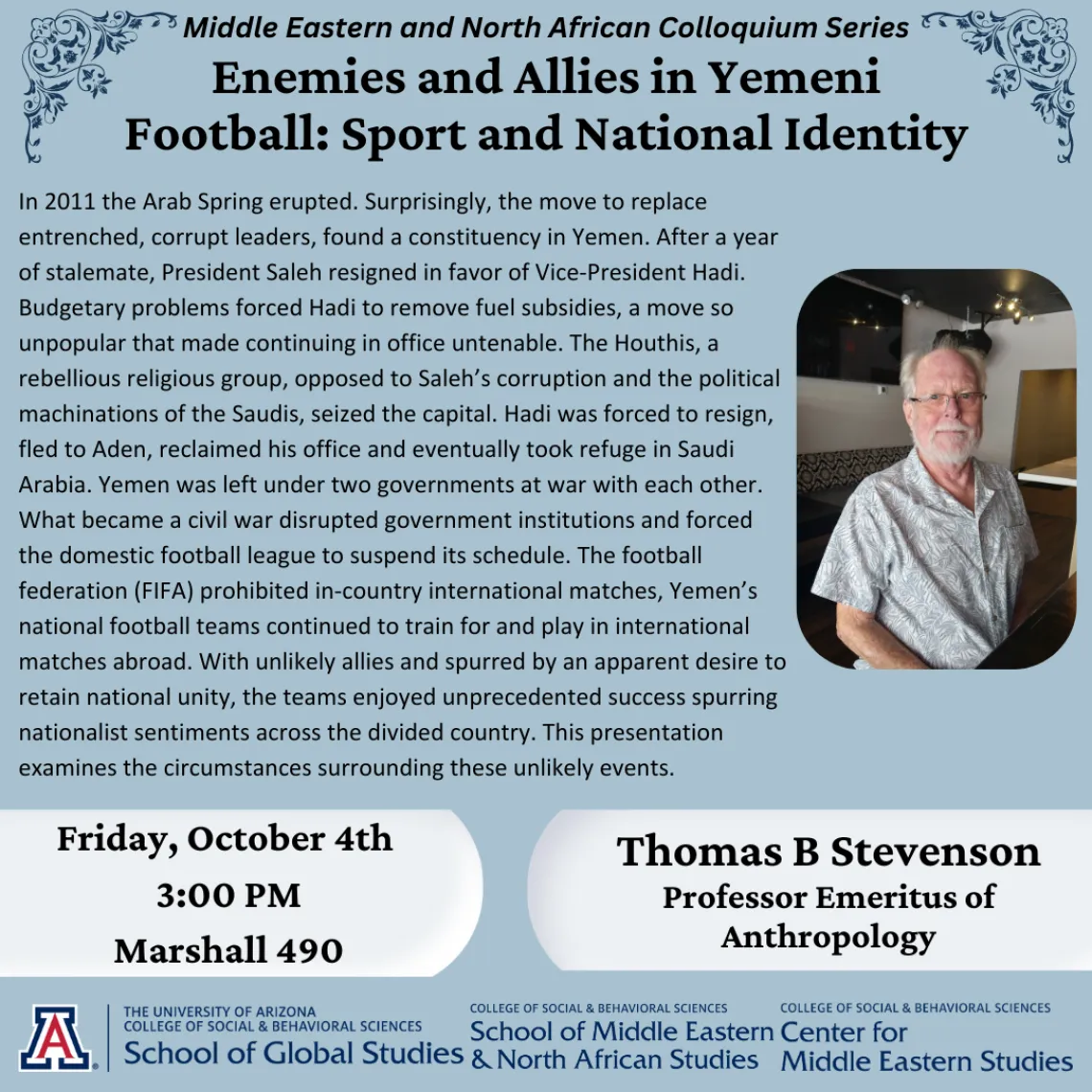Enemies and Allies in Yemeni Football: Sport and National Identity

When
Where
Thomas B Stevenson, Professor Emeritus of Anthropology
Enemies and Allies in Yemeni Football: Sport and National Identity
In 2011 the Arab Spring erupted. Surprisingly, the move to replace entrenched, corrupt leaders, found a constituency in Yemen. After a year of stalemate, President Saleh resigned in favor of Vice-President Hadi. Budgetary problems forced Hadi to remove fuel subsidies, a move so unpopular that made continuing in office untenable. The Houthis, a rebellious religious group, opposed to Saleh’s corruption and the political machinations of the Saudis, seized the capital. Hadi was forced to resign, fled to Aden, reclaimed his office and eventually took refuge in Saudi Arabia. Yemen was left under two governments at war with each other. What became a civil war disrupted government institutions and forced the domestic football league to suspend its schedule. The football federation (FIFA) prohibited in-country international matches, Yemen’s national football teams continued to train for and play in international matches abroad. With unlikely allies and spurred by an apparent desire to retain national unity, the teams enjoyed unprecedented success spurring nationalist sentiments across the divided country. This presentation examines the circumstances surrounding these unlikely events.

